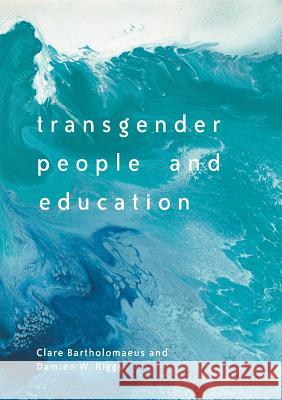Transgender People and Education » książka
topmenu
Transgender People and Education
ISBN-13: 9781349957927 / Angielski / Miękka / 2018 / 195 str.
Kategorie:
Kategorie BISAC:
Wydawca:
Palgrave MacMillan
Język:
Angielski
ISBN-13:
9781349957927
Rok wydania:
2018
Wydanie:
Softcover Repri
Ilość stron:
195
Waga:
0.25 kg
Wymiary:
21.01 x 14.81 x 1.12
Oprawa:
Miękka
Wolumenów:
01
Dodatkowe informacje:
Wydanie ilustrowane











